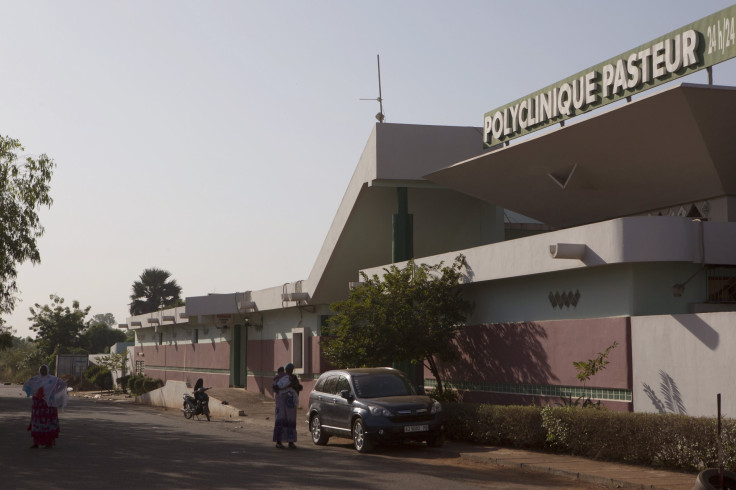Ebola Outbreak In Mali More Serious After Pasteur Clinic Failed To Diagnose Imam With Ebola

Editor's note: This story has been updated in the first paragraph to reflect that there is no connection between the Pasteur Clinic in Bamako referred to in this story and the Paris-based Institut Pasteur or its international network.
Mali is struggling to prevent a major Ebola outbreak after the deaths of a cleric and a nurse from the virus went unnoticed for days, global health authorities said Wednesday. The outbreak was detected only after a nurse at the Pasteur Clinic (not related to the Paris-based Institut Pasteur or its international network) in Bamako fell ill and died.
The threat of a fresh and more serious outbreak in Mali began after the clinic failed to test an Islamic cleric for Ebola after he was diagnosed with kidney failure. The imam was being treated at the hospital, which failed to connect his symptoms to those seen during the advanced stages of an Ebola infection. The grand imam died in late October, and several people reportedly came in contact with the man’s body, which was reportedly washed at a mosque before being returned to Guinea.
“It was a real failure by the clinic,” Dr. Ibrahima Soce Fall, a World Health Organization or WHO representative said, according to The New York Times.
Malian health authorities on Wednesday reportedly confirmed that one of the doctors at the clinic also had Ebola. And, since the death of the nurse, the clinic has been closed and more than 90 people, including 10 U.N. peacekeepers, have been quarantined. The mosque in Bamako, where the imam’s body was washed, has also been put under quarantine, but so far there is no news of anyone falling ill, The Times reported.
Authorities reportedly said that it was difficult to track down people who came in contact with the imam as he fell ill on Oct. 11, but was only found to have died from Ebola on Nov. 11. Health experts are also reportedly facing challenges in tracking down everyone who came in contact with the nurse and other suspected Ebola cases in the country.
The WHO said that a friend who visited the imam at the clinic and died of an unexplained illness is a suspected case, but there were no blood samples to confirm it, The Times reported.
“Most nurses and doctors had gone home when the clinic was quarantined, and I fear the patients will be left without proper care,” Dramane Maiga, the clinic’s director, said, according to The Times.
Authorities in Mali had been reporting success in containing the deadly virus outbreak after people linked to the first Ebola case in the country successfully completed their 21-day quarantine on Tuesday. The country’s first Ebola case, a 2-year-old Guinean girl, Fanta Condé, died on Oct. 24.
The ongoing Ebola outbreak has so far claimed the lives of at least 5,160 lives, and affected nearly 14,000 people, mostly in Liberia, Sierra Leone and Guinea.
© Copyright IBTimes 2024. All rights reserved.











